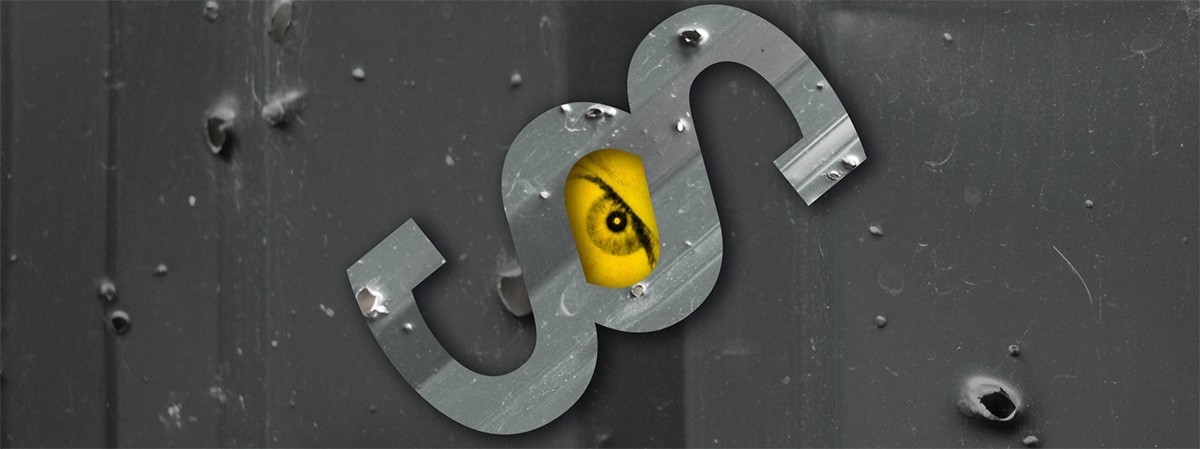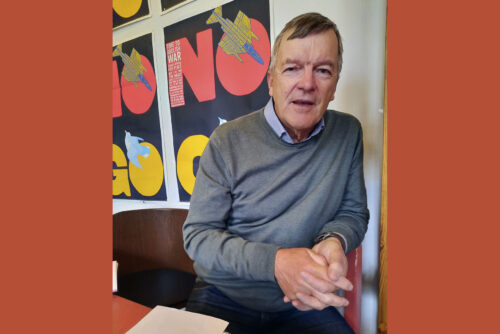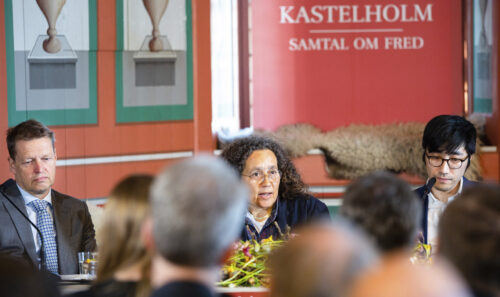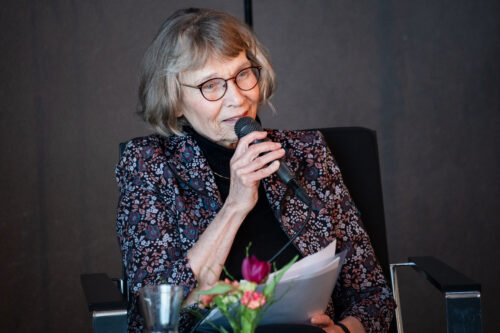I got censored by Facebook in October. One of the comments was regarded as a “violation of norms and principles of our community”. Sounds tough. I was banned for 24 hours.
Meanwhile, Mark Zuckerberg delivered a speech on free speech on October 17. He streamlined it live through his platform. Zuckerberg harshly criticized Facebook’s Chinese rival, the TikTok platform, for censoring content.
What was the reason for my ban from Zuckerberg’s platform?
I made a post on October 14 on how the Prime Minister of Ukraine had publicly attended a gathering by far-right groups in Kiev. He addressed an audience adorned with swastikas and supporting white supremacy, and shared the stage with the heavy-metal band Sokira Peruna, which is regarded as neonazi.
Addressing the audience, the Prime Minister said, “Thank you that you are here. The fact that you are gives us the opportunity to live on a peaceful earth under a peaceful sky and do what I think we can do well. We work for you. I work for you. For Ukraine to become stronger. We really want our country to become truly strong. For us to have the resources to finance our army, our men and women who give their lives every day, part of their time, so that the rest of Ukraine has the opportunity to live normally in a peaceful and successful Ukraine … Thank you and congratulations! You are very cool,” Honcharuk said, addressing the audience in the hall.
Prime Minister Honcharuk was a guest of honor at this concert organized by a neo-Nazi S-14 activist, who is charged by the Prosecutor General Office of Ukraine with the assassination of the prominent writer and journalist Oles Busina.
The comment which Facebook found inappropariate was, actually, a screenshot from the Facebook account of a person who was with the organizers in the photo taken at the performance. Swastikas were pretty visible there. The original account has not been censored. Another leading representative of the S-14 group, Serhiy Bondar, made a post containing the number 88 and two words, ”Heil Honcharuk”. It has not been censored by the Facebook admins either. Facebook refused to censor posts by some “Tim Zlatkin” with his photos of meat preserves labelled “separatist in oil”.
My Messenger account was blocked for another 24 hours due to my attempt to inquire of Facebook admins why it is appropriate to incite hatred of one ethnic and language group while attempts to draw attention to the threat which far-right groups pose for democracy in Europe cause punitive measures.
This is not the first time that I faced problems caused by the Facebook administration. In October 2014 I lost my previous account while I attended a public event in the presence of representatives of Amnesty International Finland. The cause was my stories about the plight of civilians I had observed during my first trip to the conflict area in Ukraine. These testimonies brought from the trip were unwelcomed by Facebook while they were acceptable for a hearing at the European Parliament.
The new round of problems is definitely caused by the case of Andy Rocchelli and Andrey Mironov, two friends and colleagues killed in Ukrainian Slavyansk in the very first days of the armed confrontation. I went to Italy in spring and summer 2019 to observe the trial of Vitaly Markiv, a Ukrainian soldier holding Italian citizenship.
Markiv was arrested in summer 2017 on arrival in Italy from Ukraine for a vacation. At the time of his arrest, he was a senior sergeant with the National Guard of Ukraine, a military formation under the command of the Interior Ministry. Vitaly Markiv was among the first volunteers to go to war from the tents in Maidan. In May 2014 he was in the town of Slavyansk in the Donetsk region. The Italian prosecutor charged him with “participating in the murder of Rocchelli and Mironov”. In July 2019 the court in Pavia sentenced Markiv to 24 years. The verdict has caused extreme indignation both with the Ukrainian authorities and in those circles which justify the deaths of journalists as “sacred combat against Russia”. Being in Pavia as an observer of the court session drew the attention of such circles to me.
It resulted in a number of publications, both in Ukrainian fora and outside, which depicted me as an instrumental factor in the sentencing of Markiv. It is important to point out that no matter whether they were Ukrainian outlets or international ones, it was mainstream Ukrainain journalists who were alerting their overseas patrons to the danger which Chelysheva poses for Ukraine. The Atlantic Council is among them. They do not find the murder of two civilians doing their job of reporters outrageous, but the fact of sentencing a person whose role led to imprisonment. The article they published was developed by a journalist with Hromadske Radio, Olga Tokariuk. Another project established and financed through the Atlantic Council is the Riga-based Digital Research Lab. These “digital Sherlocks” see their goal as “transforming digital engagement space” conducting “ground-breaking investigations”. I suspect I was targeted by these “digital forensics”.
In January 2019 Nathaniel Gleicher, Head of Facebook Cybersecurity Policy, announced that the platform “removed multiple pages, groups and accounts that engaged in coordinated inauthentic behavior on Facebook and Instagram. The two operations we found originated in Russia, and one was active in a variety of countries while the other was specific to Ukraine”. Gleicher mentions “an initial tip from US law enforcement” as a reason for such cleansing. In fact, the main role in the operation was played by this group of “digital forensics” from Riga, according to numerous publications in the Latvian and Estonian media. The spokesperson for this first massive onslaught on freedom of opinion in Facebook was Nika Alexeeva. In 2017 she acted as a digital expert with StratCom, the NATO Strategic Communication Center, also based in Riga.
With great satisfaction I came across a new victory by such digital forensics. They destroyed the FB page “Russian kitchen”; Vsevolod Pulya, one of its admins, states in his post that the page had some 40000 subscribers and contained Russian cuisine recipes and photos of such tools of Russian influence as photos of “caviar and bliny”. The most common comment to the news was about the hybrid war over whether borsch is an element of Russian or Ukrainian cuisine.







